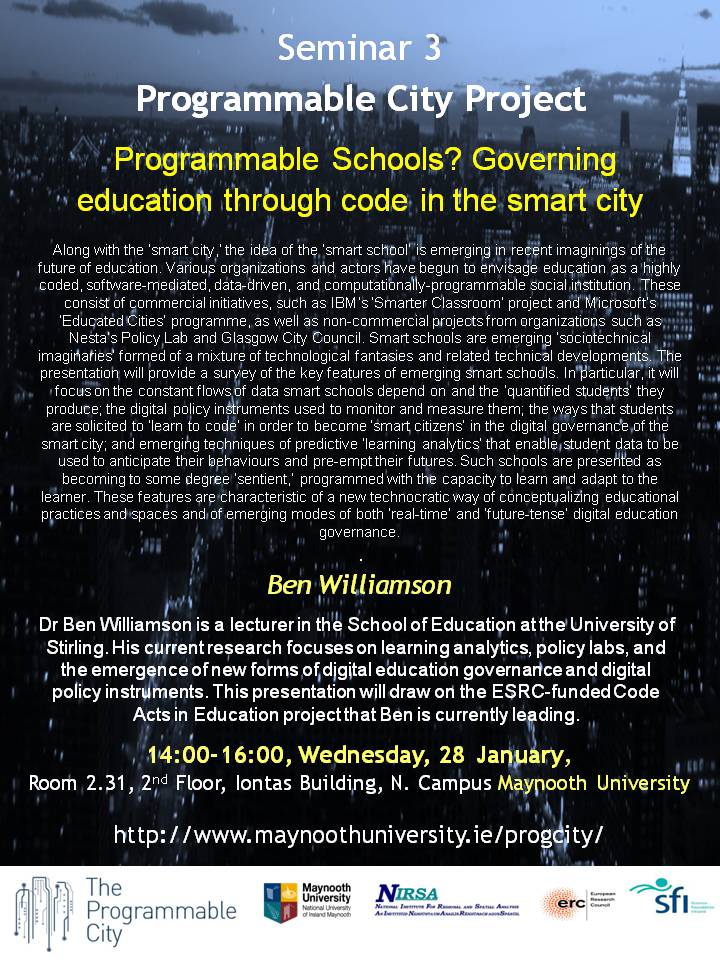A new paper by Rob Kitchin – Thinking critically about and researching algorithms – has just been published (online first) in Information, Communication and Society.
Abstract
More and more aspects of our everyday lives are being mediated, augmented, produced and regulated by software-enabled technologies. Software is fundamentally composed of algorithms: sets of defined steps structured to process instructions/data to produce an output. This paper synthesises and extends emerging critical thinking about algorithms and considers how best to research them in practice. Four main arguments are developed. First, there is a pressing need to focus critical and empirical attention on algorithms and the work that they do given their increasing importance in shaping social and economic life. Second, algorithms can be conceived in a number of ways – technically, computationally, mathematically, politically, culturally, economically, contextually, materially, philosophically, ethically – but are best understood as being contingent, ontogenetic and performative in nature, and embedded in wider socio-technical assemblages. Third, there are three main challenges that hinder research about algorithms (gaining access to their formulation; they are heterogeneous and embedded in wider systems; their work unfolds contextually and contingently), which require practical and epistemological attention. Fourth, the constitution and work of algorithms can be empirically studied in a number of ways, each of which has strengths and weaknesses that need to be systematically evaluated. Six methodological approaches designed to produce insights into the nature and work of algorithms are critically appraised. It is contended that these methods are best used in combination in order to help overcome epistemological and practical challenges.
The final version is available here and a pre-print version of the paper can be downloaded here.

